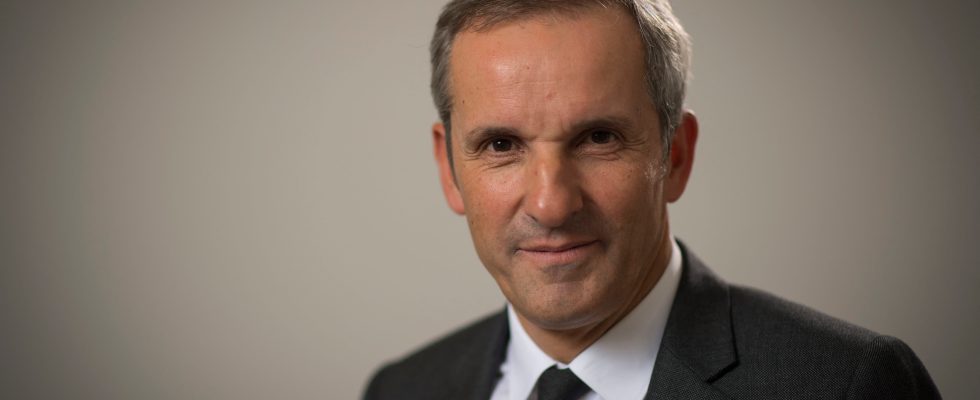Work seems to occupy a less central place among the French than in the past. Conversely, the desire for flexibility has never been stronger. This being said, how can we generate engagement? The question is vast. “It’s even gigantic,” says Pascal Demurger in a burst of laughter. The current general director of Maif, however, has his own idea. At the head of the mutual insurer for fifteen years, this enarque is one of the rare major French leaders to loudly advocate a managerial revolution. His key word: confidence. “Many companies have not yet understood that greater efficiency and stronger employee commitment do not come through the meticulousness of processes and the rigor of controls but through greater room for maneuver.” The reasoning is simple: if the employee feels that the company trusts him and lets him function as a responsible adult, he will be infinitely more encouraged to get involved. It’s been ten years since Maif moved from a very classic, hyper-top-down managerial approach to management through trust. The shift did not happen overnight. Maif management supported each of the managers at the time with an individual plan – coaching, training, study stays in more advanced companies, etc. “Some, not ready to play the collective game, did not find it, they left. But the vast majority adhered to this new system and we quickly saw the benefits. Take absenteeism for example, it fell by 25% in a few months.”
The speech has something to seduce. But what to do if this trust is betrayed or at the very least disappointed? “We must not deceive ourselves, a minority will benefit from it. We must accept it, and deal with it. Trust and demands are not contradictory. If this trust is betrayed, the sanction must be even higher because if someone “If you take advantage of this, the system itself is put in danger.”
Second condition of commitment? “Give a general sense of the company’s mission and be able to explain to each of the group’s 10,000 employees what their personal contribution is.” Injecting meaning is good, but we must not lose it where it already exists, particularly in a business world plagued by meetingitis and lengthy procedures. Maif has recently tested the ban on meetings before 10 a.m. and after 5 p.m., so that outside of these times people can concentrate on their tasks, “an expectation which has been expressed by employees”.
When teleworking, be careful “not to go overboard”
“The excess of procedures is particularly true in a large, very vertical organization, where we seek to organize everything from the top. But we can fight against it, it’s called agility”, explains the one who will breathe in the fall its sixty candles. On the question of remote working, Maif sets two days of compulsory presence per week, each manager is then free to decide on a precise schedule in their department. “With the slight hindsight we have, we can say that the impact of the implementation of teleworking is overall very positive. Productivity has not fallen, or even increased. There is no widespread abuse “. If in the United States and Germany, many bosses have decided to go back, the “great return to the office”, Pascal Demurger does not believe in it – “it would be impossible for many employees” -. “The big question for me is whether there could be, over time, negative effects, particularly on the feeling of belonging, perhaps tomorrow on motivation, the collective, creativity. There is a real long-term risk if we slip into excess. The question of greater formalization of the rules for using teleworking “must be asked again”, believes the boss of Maif, who warns: “companies must not place responsibilities that are only on the shoulders of managers. ‘they themselves are supposed to take’.
Maif has around 800 managers. How can we ensure that this vast body ensures that strategic decisions are passed down to the base? “The subject is not to control, verify, correct, it is to convince, to get on board, to create a collective dynamic which imposes itself with the force of evidence and which people want to follow” , pleads the one who The world recently described as the “benevolent management theorist”. When it is pointed out to him that benevolence is a term today used indiscriminately, in particular by the proponents of positive psychology, Pascal Demurger readily recognizes the limits of this word which he himself used by ” ease”: “it’s a term which I can clearly see is being diverted from its initial meaning. In the eyes of some, the simple fact of giving an order is now associated with malevolence”.
And doesn’t horizontal management, of which he is a fervent defender, slow down decision-making? “Employees need autonomy and initiative. And a lot of horizontality does not mean less verticality. The most important thing is to question the nature of this verticality. The legitimacy of this cannot stand solely on positioning in the organization chart. It is based above all on the personal capacity to exercise a form of authority. Not to be confused with authoritarianism, our interlocutor warns: “a leader, or any manager must realize that the way in which he behaves has an impact on the well-being or ill-being of people who work with him.
.
